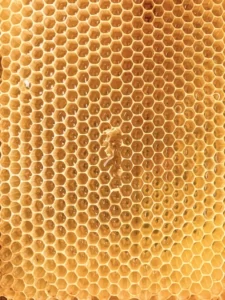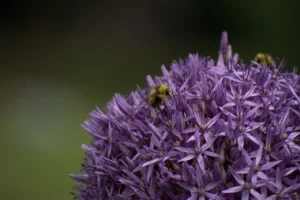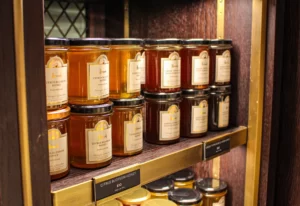Table of Contents
Honey is a common food item that many people enjoy for its antibacterial properties, antioxidants, and vitamins. However, when it comes to cats, honey is not recommended as a regular part of their diet. While it is not toxic to cats, it does not provide any significant health benefits and may even pose some risks. In this article, we will explore whether cats can eat honey, why it is not recommended, and what to do if your cat accidentally consumes honey.
What’s Good About Honey?
Honey has various potential benefits for humans, including its ability to soothe allergies, its rich antioxidant content, and its anti-inflammatory and antibacterial properties. Some people believe that honey can also help alleviate allergies in cats. However, there is currently no scientific research to support this claim.
Cats & Sugar
Cats are “sweet blind,” meaning they lack the ability to taste sweet flavors. Their digestive systems are designed to process meat, making them more attracted to the fat content of treats rather than the sweetness. Therefore, cats are unlikely to enjoy the taste of honey as much as humans do.
If you want to treat your cat, it is better to choose a high-protein treat such as plain boiled chicken or a commercially available cat-specific treat.
What’s Bad About Honey?
Cats can consume a small amount of honey without experiencing adverse effects. However, their digestive systems are not designed to break down the sugars found in honey. Cats are obligate carnivores, and their diets primarily consist of meat. While they need some fiber, vitamins, and minerals, they do not require the same varied diet as humans.
Honey is primarily composed of fructose and glucose, which cats cannot easily process. Therefore, it is not recommended to feed honey to cats, especially if they have specific health conditions.
If your cat is diabetic or overweight, honey should be avoided. Diabetic cats should not consume honey due to its high sugar content. Similarly, overweight or obese cats should not be given honey as it does not provide any nutritional benefits and can contribute to weight gain.
What Might Happen if My Cat Eats Some Honey Accidentally?
Most cats will not intentionally eat honey, but they may consume it accidentally. A small amount of honey is unlikely to cause long-term harm to your cat. However, it can lead to minor health complications such as diarrhea, vomiting, and abdominal pain.
If your cat has ingested honey, it is essential to monitor them closely for the next 24 hours. If they exhibit any signs of discomfort or show any other abnormal symptoms, it is advisable to contact your veterinarian.
Should You Give Your Cat Honey Intentionally?
It is generally best to avoid intentionally feeding your cat honey. While unprocessed honey is believed to help with certain allergies in humans, this benefit is unproven and may not apply to cats. Supermarket honey is typically pasteurized and does not offer the same potential benefits as local, unpasteurized honey. However, even local honey may not provide any significant advantages for cats.
If you are considering using honey to alleviate your cat’s allergies or provide antioxidants, it is recommended to consult your veterinarian for safer and more effective alternatives. There are other medications and treatments available that have been specifically formulated for cats.
Can Kittens Have Honey?
While adult cats can tolerate a small amount of honey, it is best to prevent kittens from consuming any honey. Their delicate digestive systems are more susceptible to picking up botulism from the bacterial Clostridium botulinum spores that can be present in raw honey.
Wrapping It Up
In conclusion, there are various reasons to avoid giving honey to cats. Honey is high in sugar, which cats cannot efficiently process, and it can contribute to obesity, tooth decay, and complications for diabetic cats. While a small amount of honey accidentally ingested by an adult cat is unlikely to cause serious harm, it can lead to gastrointestinal issues.
If you are looking to add antioxidants to your cat’s diet, consider dietary supplements, treats specifically formulated for cats, or cat food that contains blueberries. It is best to prioritize a balanced diet that meets your cat’s nutritional needs rather than relying on honey for any potential health benefits.
In the end, leave the honey for human consumption and keep it out of reach of your feline friends.



